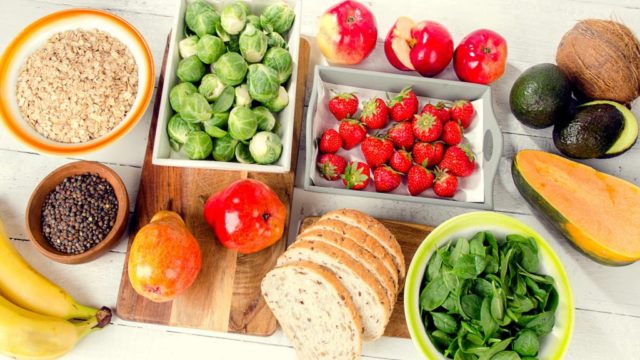
Here are some Nutrition tips for 14 days at home
Between social distancing and self-quarantining, grocery store shelves are stocked with limited supplies as many people try to stock up knowing they can’t leave the house for 14 days. Debra Silverman, a Mayo Clinic dietitian, says that shopping for 14 days at home doesn’t have to become stressful.
First and foremost, Silverman says, make a list.
“Now is the time to double-check the pantry, fridge and freezer, and make a list of what you need that will last. All of us at some point realize when we’re back in our car halfway home, ‘I should have bought some flour or I needed sugar,'” Silverman says.
Silverman also offers these tips:
Think about your family and a new routine.
“You may have kids eating lunch at home now, so you might want to have things like extra peanut butter and jelly for sandwiches. Or flour and sugar, for example, if you’re planning a baking project with your kids,” she says.
Consider alternative options.
While dairy and fresh produce are staples for many households, Silverman says don’t forget shelf-stable alternatives or frozen options. “You can buy egg whites in cartons if you can’t find eggs, for instance,” she says. “Shelf-stable items, such as powered milk, frozen fruits and vegetables, or canned (fruits and vegetables), are always good to have on hand,” she says.
Check expiration dates.
As you shop, Silverman says check expiration dates. And consider items that you can use in multiple ways. “Eggs, for instance, often have three weeks to a month of use. However, egg whites in a carton will give you a much longer time period, say six to eight weeks,” she says.
Watch: Dietitian Debra Silverman discusses 14 days of nutrition.
Courtesy of Debra Silverman, Dietitian, Mayo Clinic.
Don’t forget freezer bags.
Silverman reminds that certain food, especially if you won’t use it immediately, also can be stored in the freezer. “If you find ripe berries in the store, you can freeze those for later use. You can freeze bananas and you can use those for protein fruit smoothies later on.”
Protein, like beef and chicken, can last for about four months in the freezer. Fish, cheese and bread also freeze well, Silverman says.
“But remember, when it’s time to use it, you will want to defrost it safely,” she says, adding that you want to continue to clean and disinfect your food prep station to avoid contamination.
Most importantly, Silverman says, don’t over purchase and maintain your routine. “Just purchase things that you feel that you commonly use, that you know that you’re going to use within two weeks for you and your family.”
Check the CDC website for additional updates on COVID-19.
For more information and all your COVID-19 coverage, go to the Mayo Clinic News Network and mayoclinic.org.